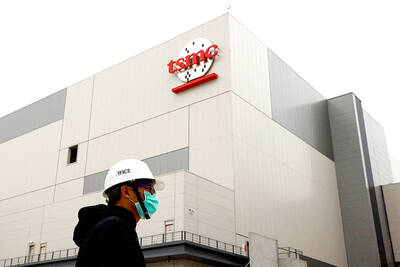The consumer price index (CPI) last month accelerated 3.59 percent from a year earlier, the fastest advance in 14 years, as almost all consumer item prices increased, led by food and fuel, the Directorate-General of Budget, Accounting and Statistics (DGBAS) said yesterday.
It is the fourth straight month the inflationary gauge climbed more than 3 percent, steeper than the central bank’s 2 percent target.
The summer electricity rates contributed to the increase after policymakers last year waived the measure amid a level-3 COVID-19 alert, senior DGBAS official Tsao Chih-hung (曹志弘) said.

Photo: CNA
“The pace of consumer price hikes could slow this month, although they will remain above 3 percent, in the absence of bad weather such as typhoons to disrupt vegetable and fruit supply,” Tsao said, adding that international commodity and oil prices have shown signs of stabilization.
The index after seasonal adjustments increased 0.11 percent, the statistics agency said in a monthly report.
Food costs, which account for 25 percent of the index, inflated 7.27 percent after suppliers raised egg and meat prices by 29.11 percent and 6.78 percent respectively to reflect increased feed costs, Tsao said.
Unfavorable weather conditions weighed on fruit supply and drove up their prices by 25.31 percent from a year earlier, he said.
Fishery product prices grew 6.99 percent, while dining costs picked up 6.38 percent, the biggest gain in nearly 14 years, he added.
The cost for transportation and communications gained 3.54 percent last month as a 7.86 percent increase in oil prices was offset by a 4.99 percent decline in telecommunications charges, the agency said.
Living costs picked up 3.36 percent due mainly to the introduction of new electricity rates on Friday, even though they only affected industrial users, but spared households, Tsao said.
Core CPI, a more reliable long-term price tracker that excludes items with volatile prices, increased 2.77 percent last month from the previous year, accelerating from May, the report showed.
Overall, the CPI data suggested that households on average spent NT$2,872 more per month than in June last year, Tsao said.
The wholesale price index (WPI), a measure of commercial production costs, advanced 16.45 percent year-on-year last month, slightly losing momentum from the record increase of 16.97 percent in May, the report showed.
In the first half of this year, the CPI increased 3.13 percent and the WPI expanded 14.48 percent from the same period last year, the report said.

Stephen Garrett, a 27-year-old graduate student, always thought he would study in China, but first the country’s restrictive COVID-19 policies made it nearly impossible and now he has other concerns. The cost is one deterrent, but Garrett is more worried about restrictions on academic freedom and the personal risk of being stranded in China. He is not alone. Only about 700 American students are studying at Chinese universities, down from a peak of nearly 25,000 a decade ago, while there are nearly 300,000 Chinese students at US schools. Some young Americans are discouraged from investing their time in China by what they see

Taiwan Semiconductor Manufacturing Co (TSMC, 台積電), the world’s largest contract chipmaker, yesterday reported record sales for the first quarter, which analysts attributed to solid demand for emerging technologies. Consolidated revenue totaled NT$592.64 billion (US$18.51 billion) in the January-to-March period, up 16.5 percent from a year earlier, but down 5.26 percent from the previous quarter, TSMC said in a statement. The first-quarter revenue beat analysts’ average projection of NT$579.5 billion, Bloomberg News reported. That performance lends weight to expectations that the world’s most valuable chipmaker would return to solid growth this year after weathering a post-COVID-19-pandemic cratering of smartphone and computer sales. TSMC is budgeting

MAJOR DROP: CEO Tim Cook, who is visiting Hanoi, pledged the firm was committed to Vietnam after its smartphone shipments declined 9.6% annually in the first quarter Apple Inc yesterday said it would increase spending on suppliers in Vietnam, a key production hub, as CEO Tim Cook arrived in the country for a two-day visit. The iPhone maker announced the news in a statement on its Web site, but gave no details of how much it would spend or where the money would go. Cook is expected to meet programmers, content creators and students during his visit, online newspaper VnExpress reported. The visit comes as US President Joe Biden’s administration seeks to ramp up Vietnam’s role in the global tech supply chain to reduce the US’ dependence on China. Images on

New apartments in Taiwan’s major cities are getting smaller, while old apartments are increasingly occupied by older people, many of whom live alone, government data showed. The phenomenon has to do with sharpening unaffordable property prices and an aging population, property brokers said. Apartments with one bedroom that are two years old or older have gained a noticeable presence in the nation’s six special municipalities as well as Hsinchu county and city in the past five years, Evertrust Rehouse Co (永慶房產集團) found, citing data from the government’s real-price transaction platform. In Taipei, apartments with one bedroom accounted for 19 percent of deals last